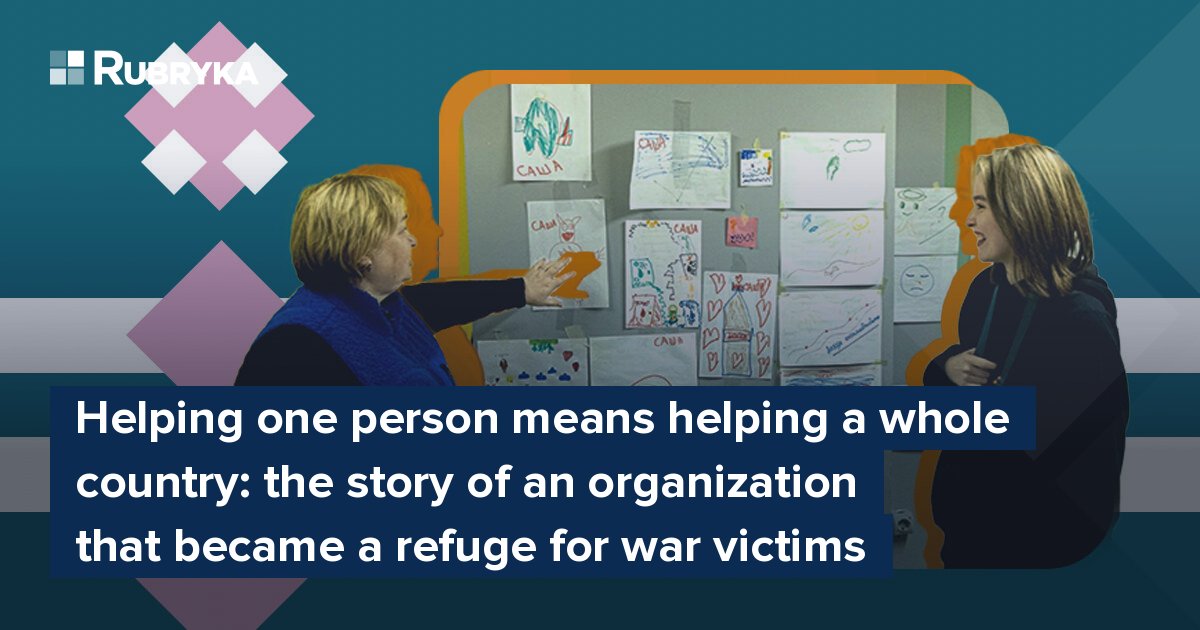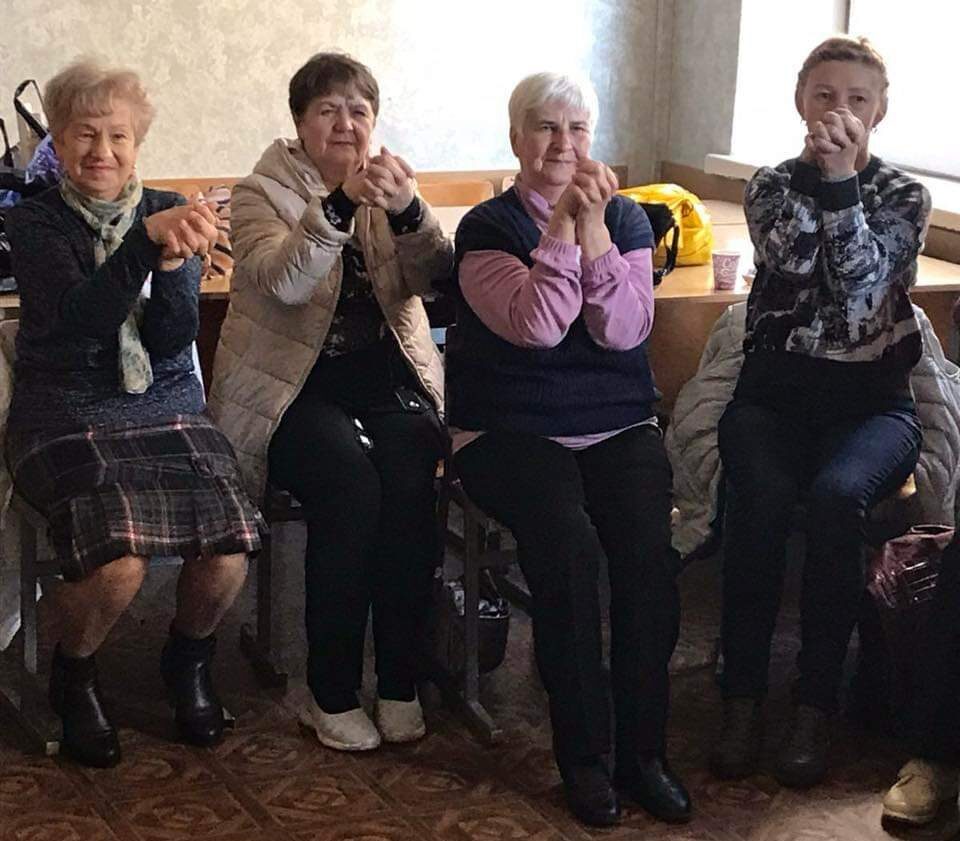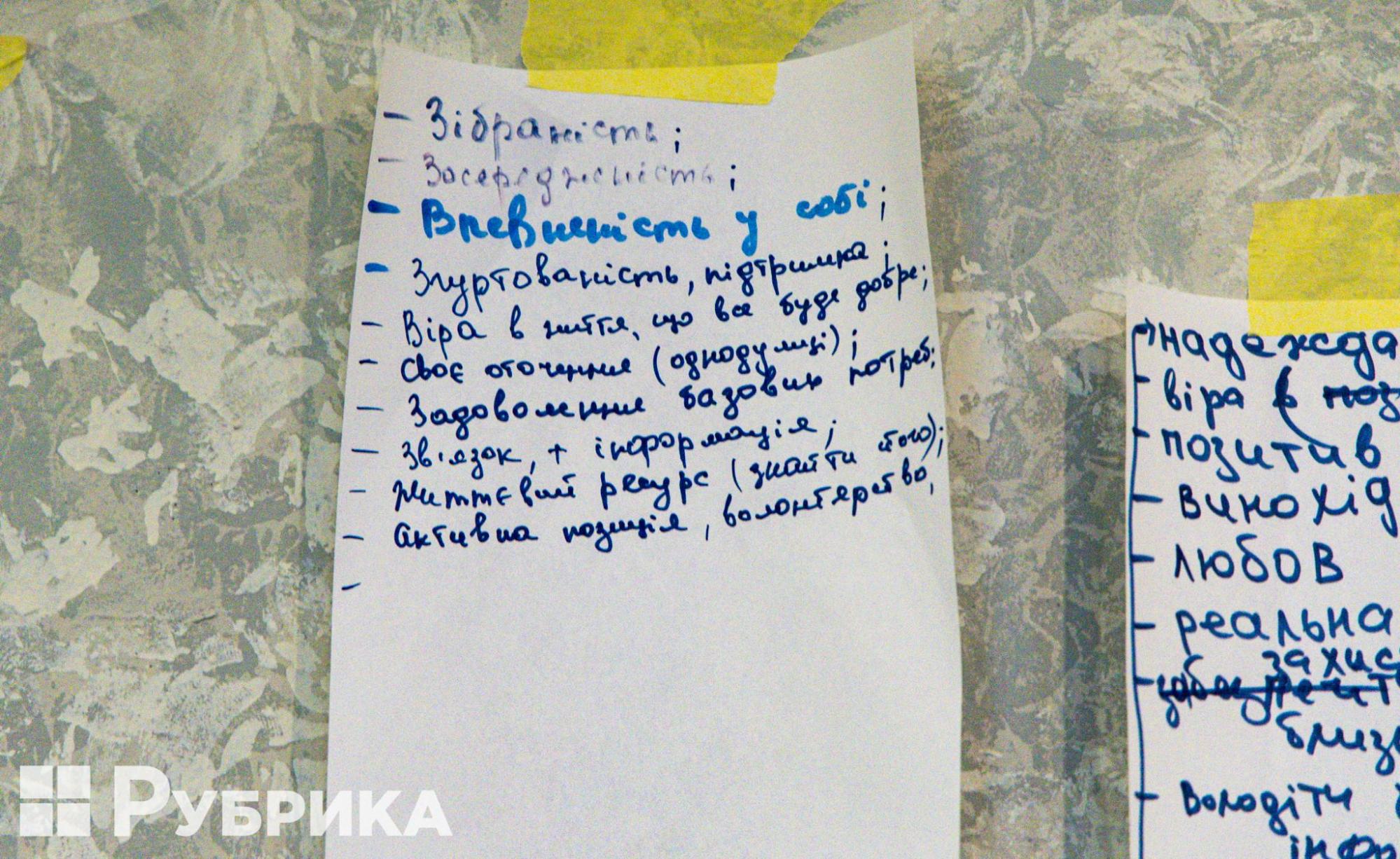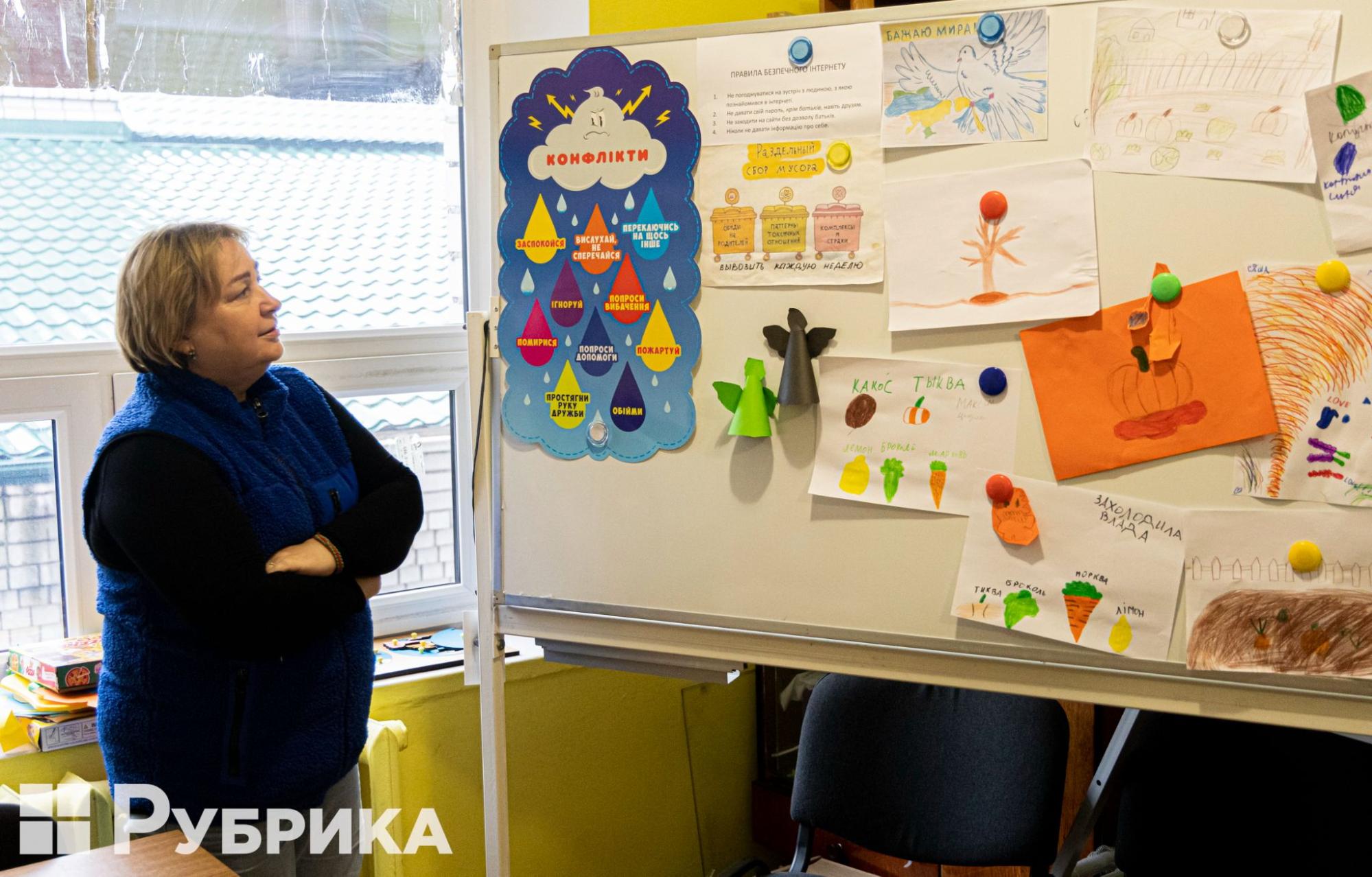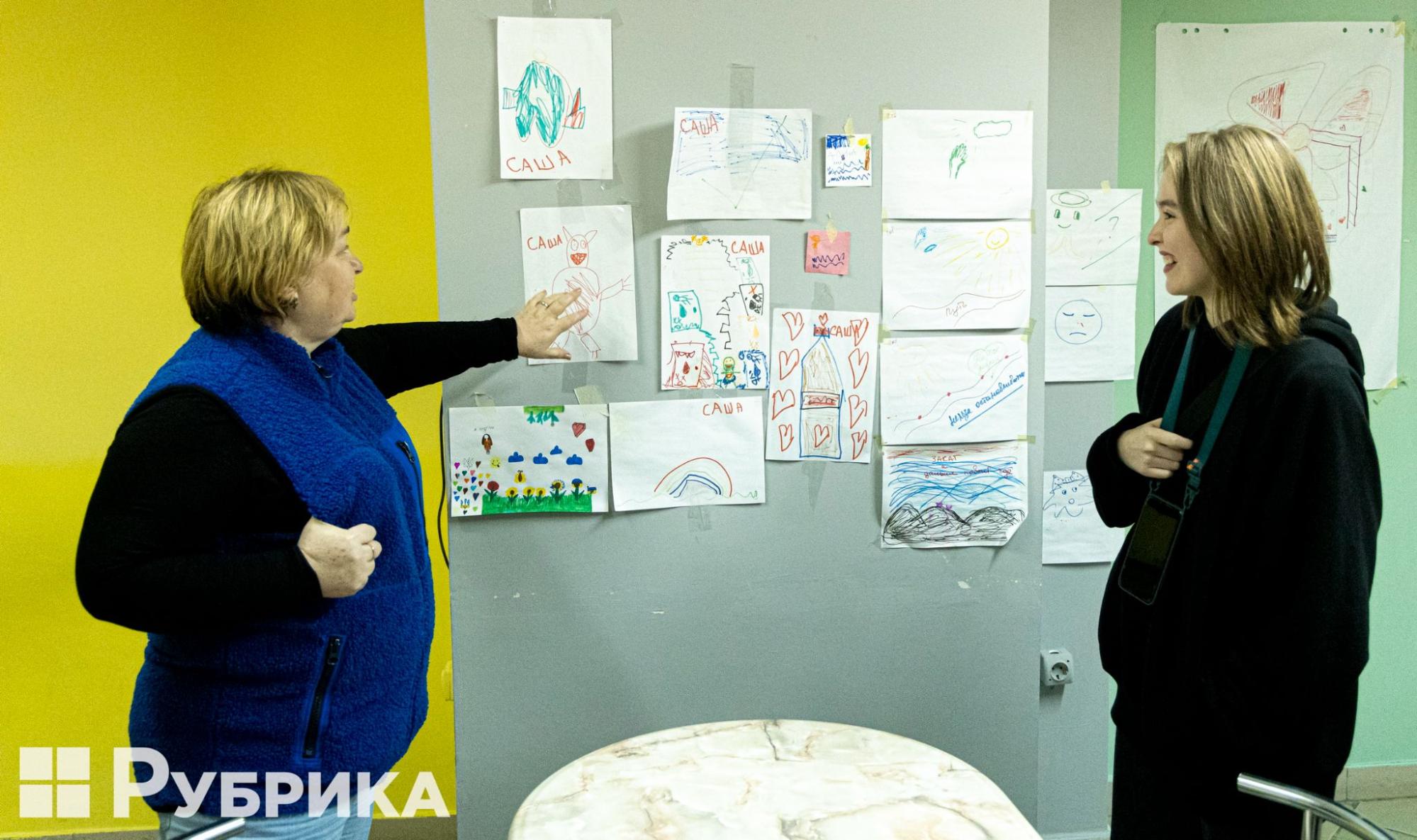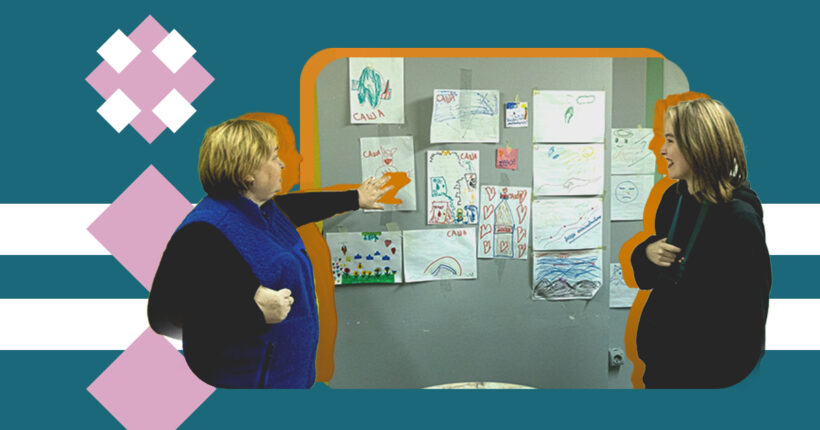
A pretty young woman sits in a chair and patiently waits for the craftswoman to give her beauty. The hairdresser carefully straightens the ends and makes curls. A smile slowly appeared on the guest's face — she seemed to like what she saw in the mirror.
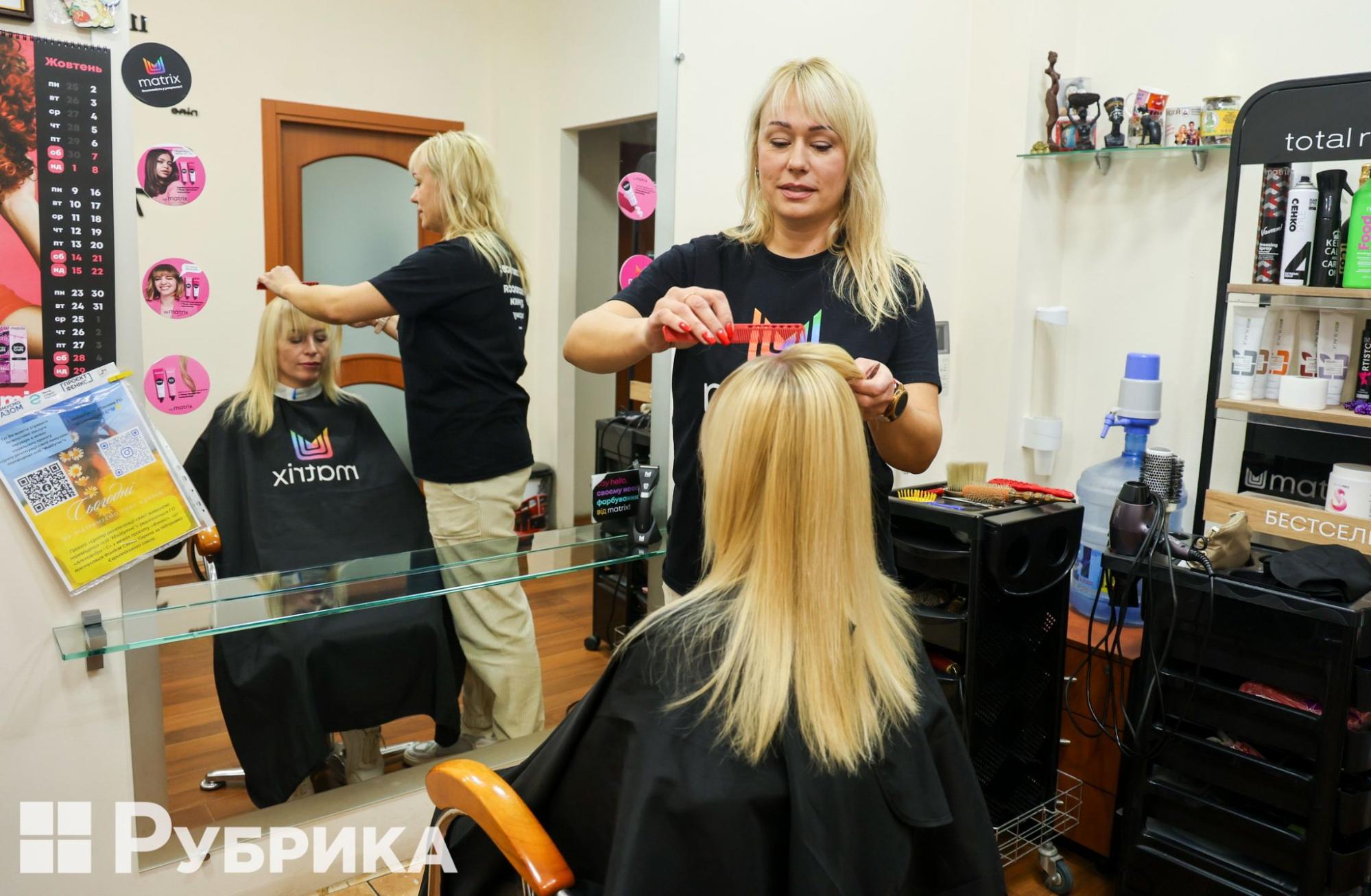
Tetiana and hairdresser Oksana.
The guest's name is Tetiana. Like thousands of others, she likes to visit the hairdresser and choose a beautiful haircut. However, Tatiana ended up here for a reason: the small hairdressing salon in Zaporizhzhia has its own history, which began on February 24, 2022.
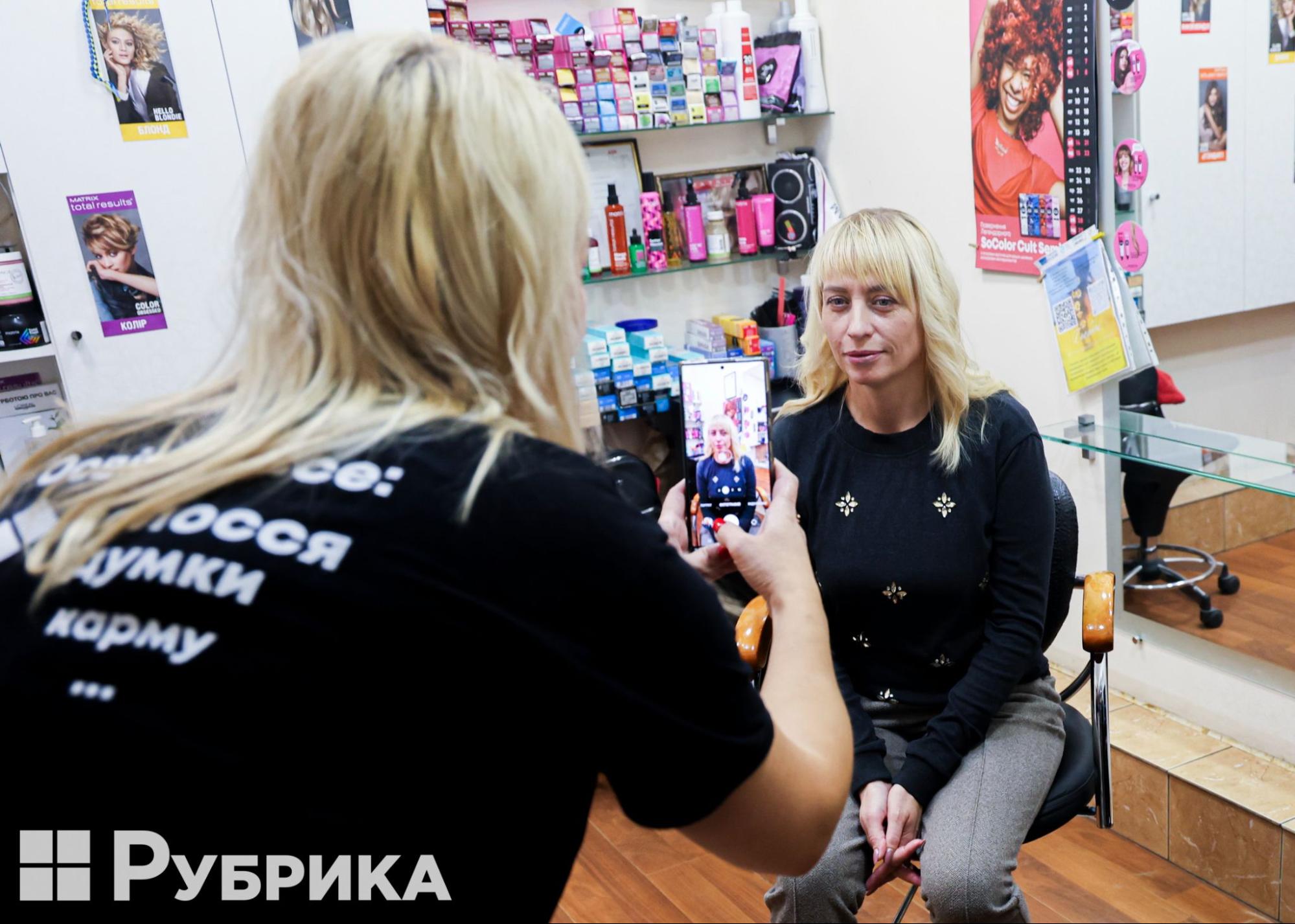
Tetiana and hairdresser Oksana.
What is the problem?
"When the shelling started, we were in the village of Kamianske. Explosions were very loud; the walls were shaking, and the child was frightened. Shelling occurred every day. When the child started to get hysterical, we got together and left — staying there became unbearable. We went here, to Zaporizhzhia," Tetiana recalls.
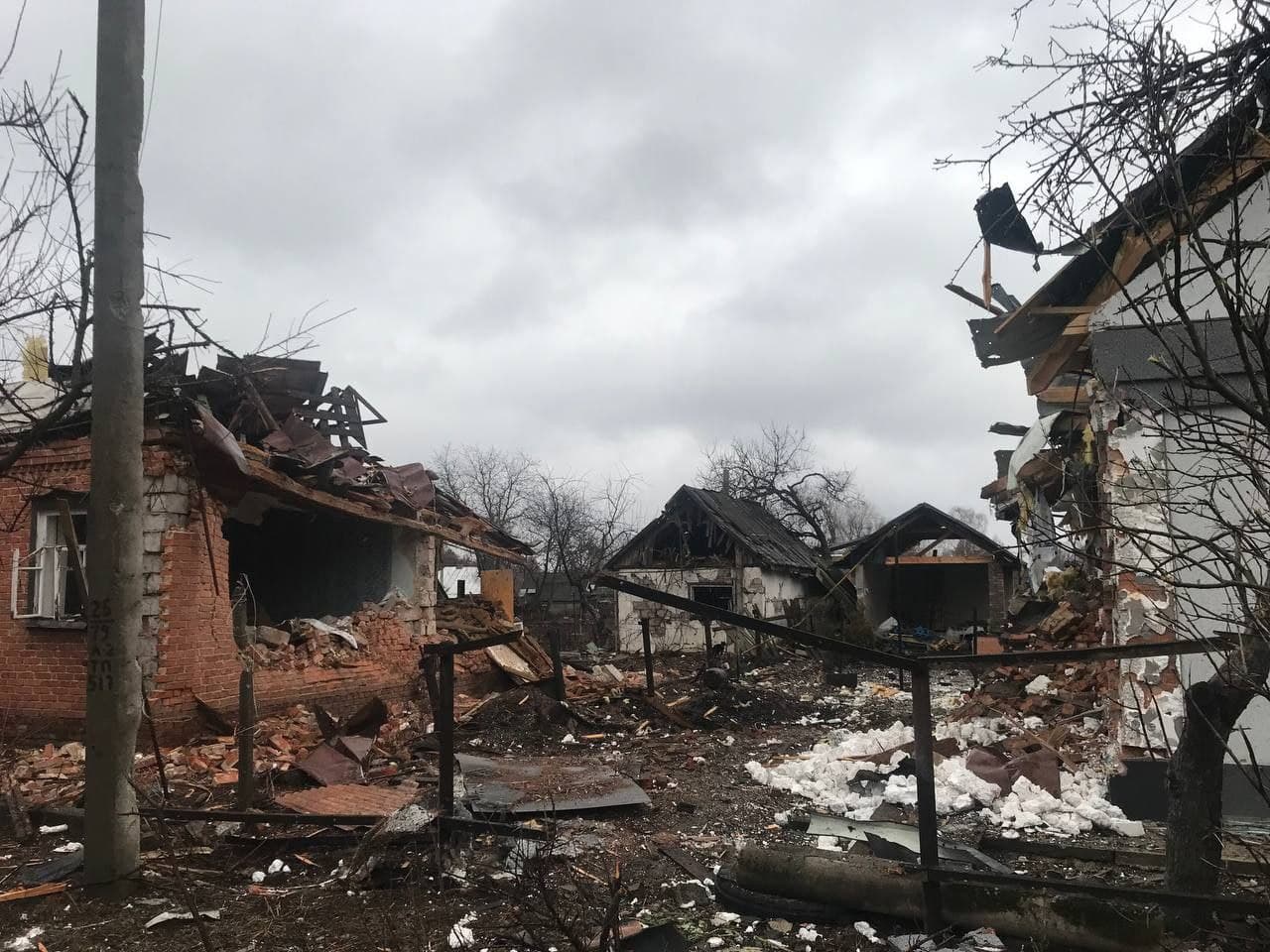
Houses destroyed by rocket fire in Kamianske. Source: Zaporizhzhia RMA
Tetiana moved to Zaporizhzhia with two children, whom she is raising alone. She says she cannot afford the services of a hairdresser because these are additional expenditures. The entire budget goes for rent and the needs of the children.
"However, you want to be beautiful for yourself. That's why it's important," she adds.
Due to Russia's aggression, thousands of residents of the Zaporizhzhia region had to leave their homes to protect themselves and their loved ones. Leaving their hometowns and villages, they left behind not only buildings but also lives built up over the years. In a new city, they try to start over but often lack funds and understanding of who to turn to for help, which causes many difficulties.
What is the solution?
Oksana is a hairdresser with 23 years of experience. After the start of the full-scale invasion, she remained in Zaporizhzhia, continuing to provide her services. She says that staying here with the others helps the defenders: "When we are around, they feel calmer."
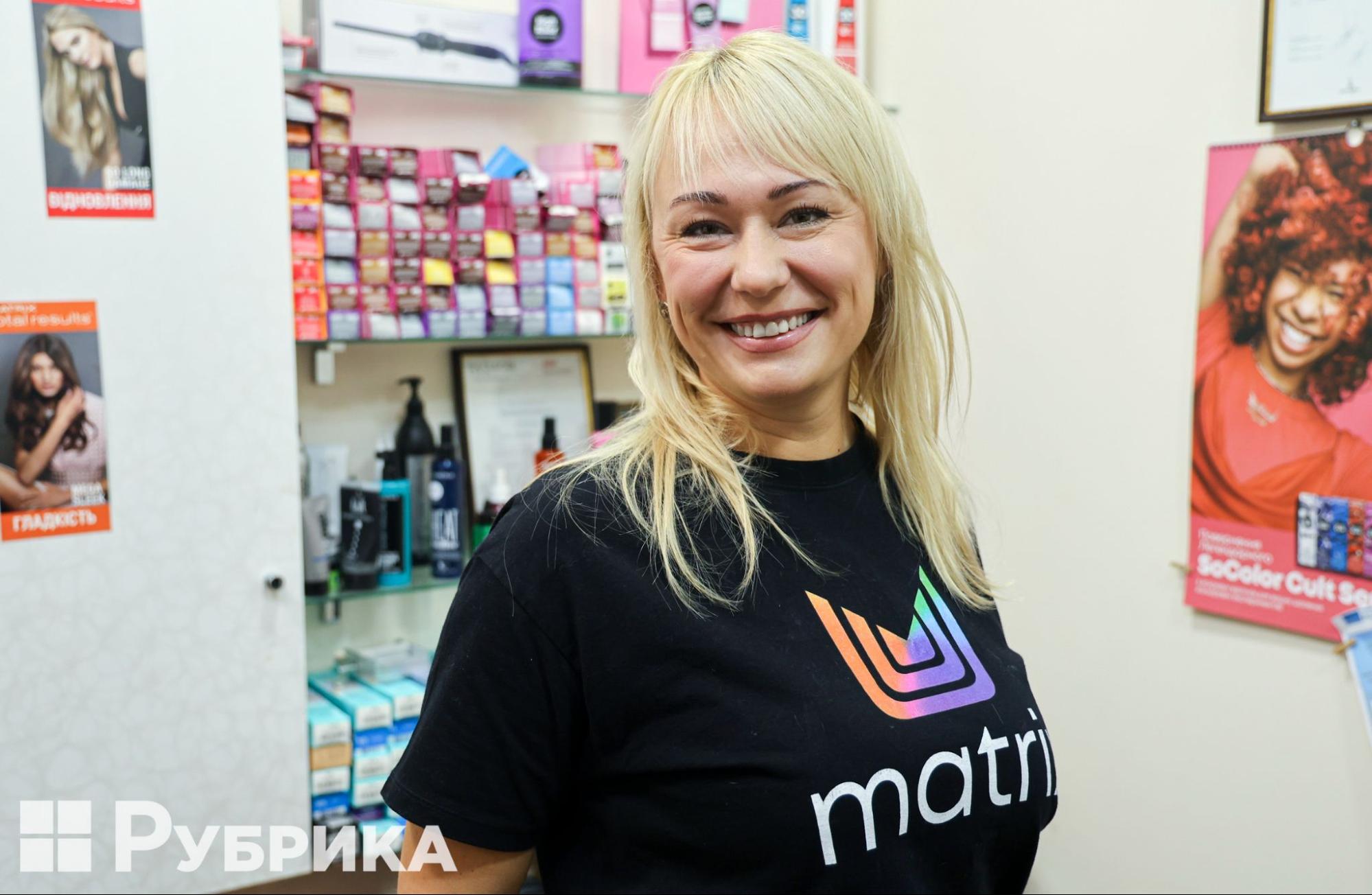 Oksana works in a salon.
Oksana works in a salon.
One day, she was approached by the non-governmental organization Alexandra and S, offering to become a hairdresser for those who need it but do not have the opportunity to pay for the service on their own.
Oksana herself comes from the city of Polohy, the Zaporizhzhia region, which is still occupied today. She did not hesitate to agree to the offer because she wanted to help people. She shares:
"I really like my work because I give people joy, happiness, a smile, a drop of comfort in the soul. I gladly accept everyone because I know almost everyone; I am delighted to be a part of this project. It's called Future for a reason."
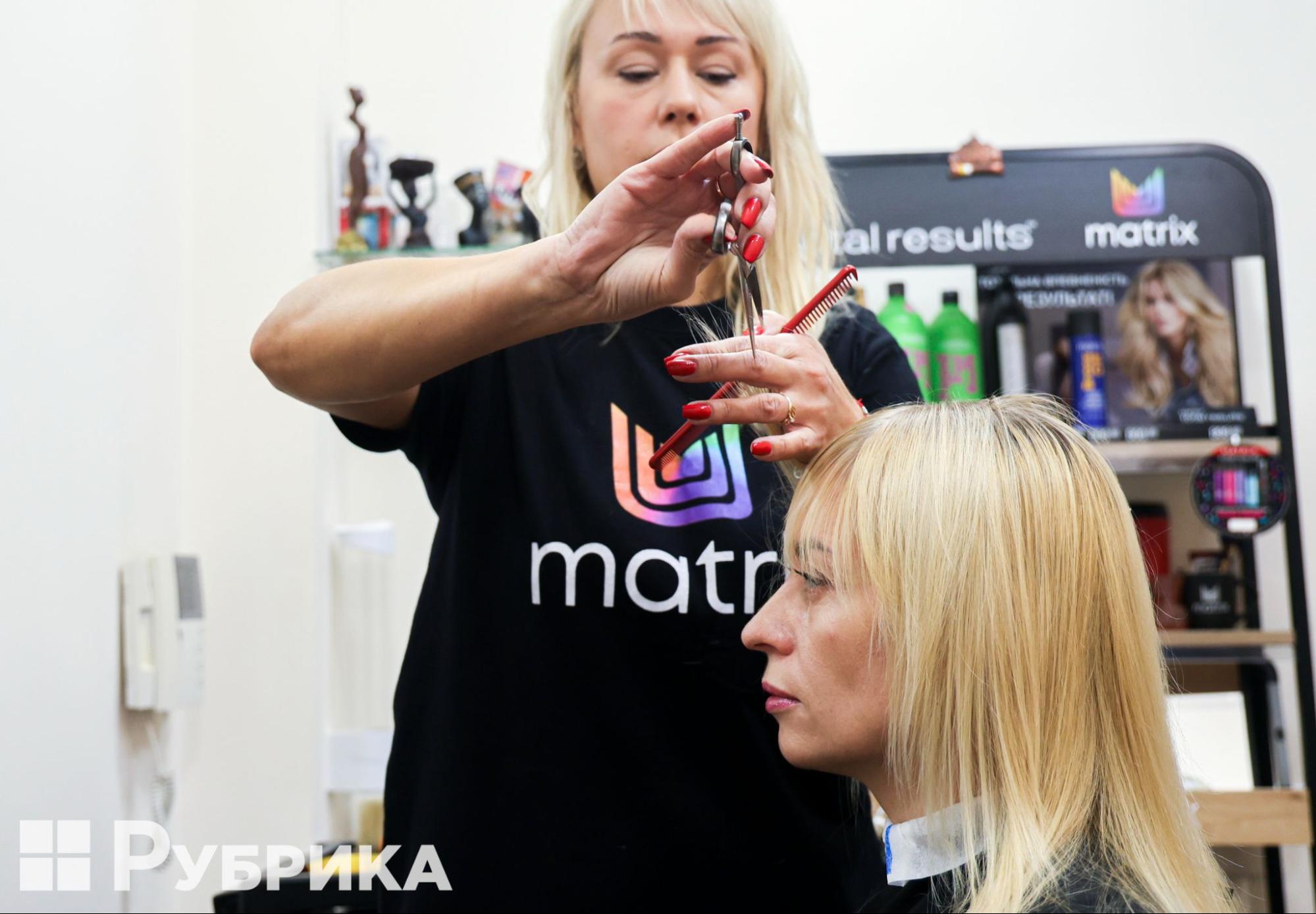
The work in progress.
Free hairdresser services are only a part of a large project, "Center for Reintegration of Families of Forcefully Displaced Persons 'Future.'" It encompasses several initiatives aimed at helping IDPs find the comfort of their home in a new place, help with socialization, and create a comfortable space for restoring their psycho-emotional state. After all, even a simple opportunity to go to the hairdresser is more than just about hair and beauty. It's about normal life, settling down, and reproducing the norm. Reconstruction is not only about destroyed houses and roads. It's also about broken lives that need support, even if it seems to be a simple act of support from a hairdresser.
How does it work?
"Both are from different cities, both IDPs, but are already like family"
Saturday in the Classical Private University building in Zaporizhzhia is a day when the whole room is filled with conversations, laughter, and the smell of coffee and cookies. After all, the door opens wide for all project participants who want to spend their time actively. There are also children's development activities, psychological help training, and even a leisure club for adults (who also need to find friends!).
Many people share that after the start of a full-scale invasion, they often feel lonely: a new place where they do not know anyone, the absence of loved ones, whom the distance does not allow them to see, etc. Loneliness and lack of social contact are factors that lead to a difficult psychological state. A person withdraws into themself and is alone with negative feelings and fears, not knowing how to deal with difficulties.
Nadiya is a pensioner and the salon's client. She is always happy to come here. "She came from Orikhiv. They don't even have a house now," says Yana Strilko, an Alexandra and S NGO team member.
She says such gatherings help people find kindred spirits and give the feeling that they are not alone and have support.
Strilko remembers how, at the first meetings, when they looked into who the IDPs were, people in the hall cried because of the long-standing feeling that they were not accepted. That is why the workers try to do everything possible to create comfort: "They come, and we give them normal treatment and tea or coffee. We have a rule — we do not criticize; here, everyone can tell their story as they wish."
Strilko adds a pleasant memory: "Once we had to cancel a Saturday meeting due to certain reasons, and then our usuals told us they missed it so much. Therefore, we will continue to hold them because there is a demand. We cannot stop because people socialize here."
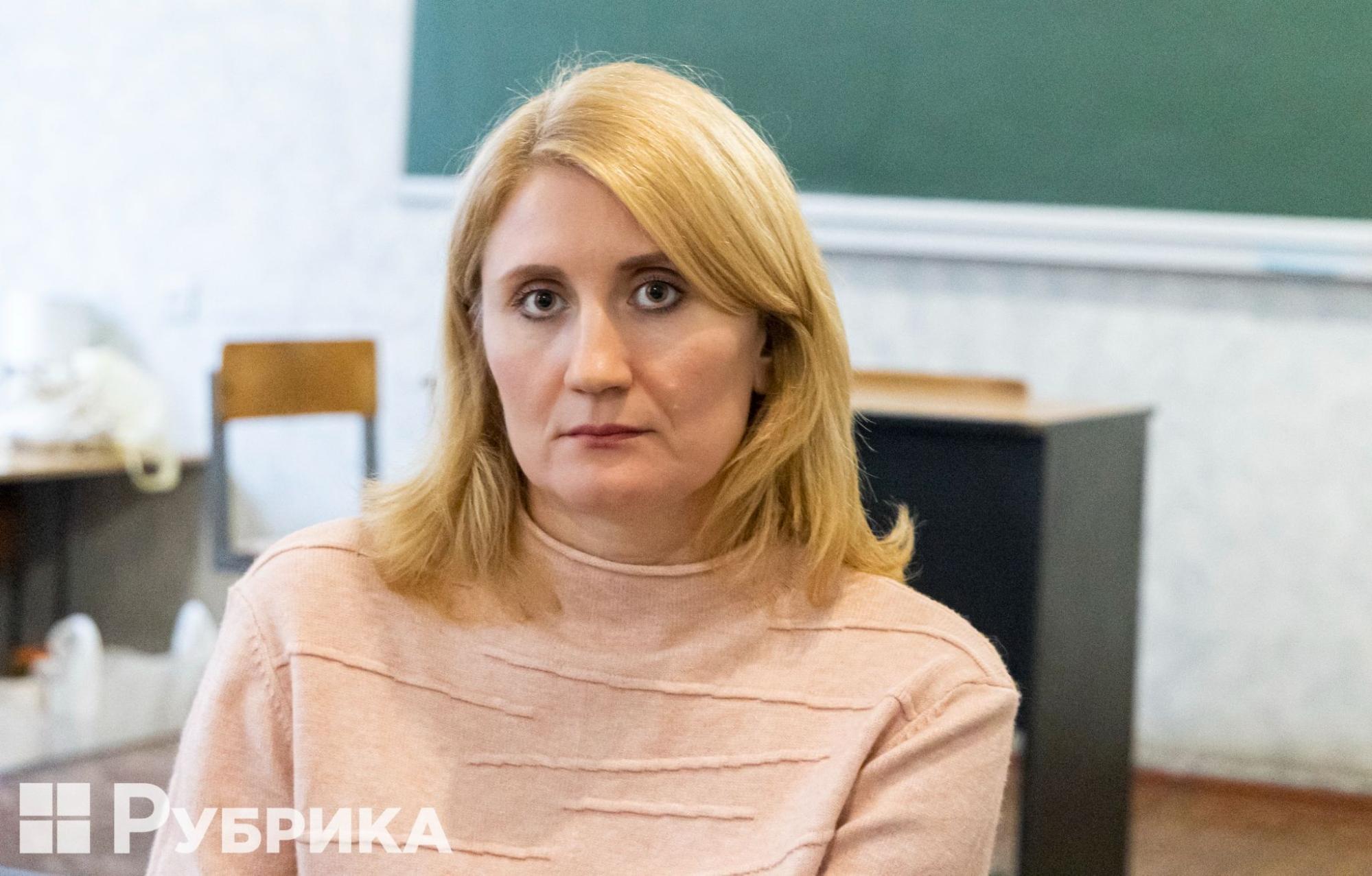 Strilko, a member of the Alexandra and S team.
Strilko, a member of the Alexandra and S team.
The club participants also weave charm bracelets, which are then handed over to the soldiers at the front. Maryna Arabadzhyn, the founder of the NGO, shares that in one week, they handed over two hundred such bracelets because the military had a demand — they believed in their power.
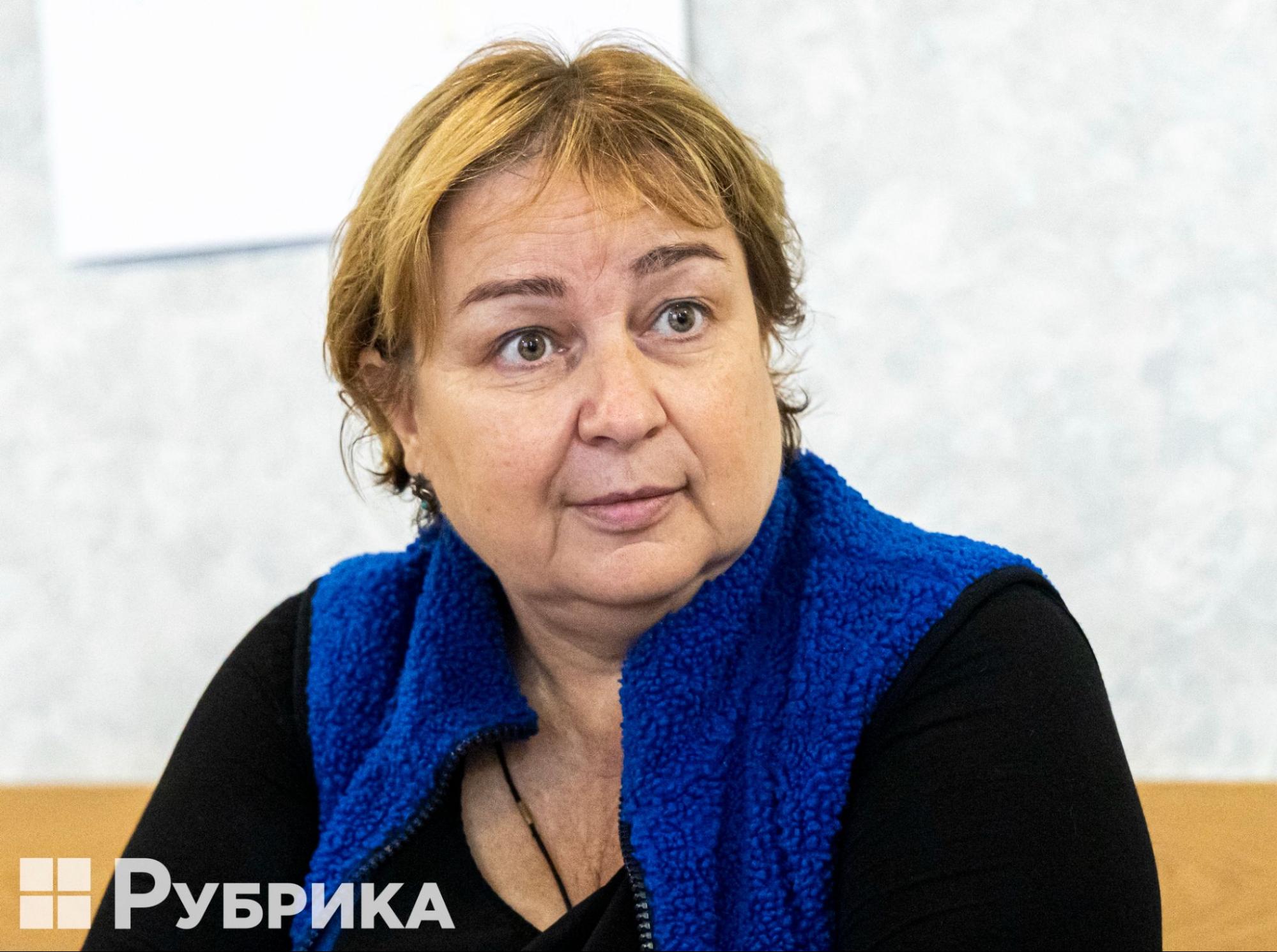
Maryna Arabadzhyn, the founder of the NGO.
"You notice in communication with women how they wonder why they didn't know this before"
One of the missions that the workers of Alexandra and S set before themselves is educational. The team includes experienced practical psychologists, candidates of science, and people who consciously came to psychology to help others. Young parents go to the training and later leave with new knowledge and reflections. Here, they are explained how to communicate with a child, why you can't put them in a corner, and how to control the manifestations of your emotions.
"They rethink their behavior and attitude to such an extent because some now have small children, and some have older ones. A woman even told us how she asked her grown-up children for forgiveness," Strilko adds that they are often thanked because sometimes things become so common that people consider them normal, and the training seems to open their eyes.
"You notice in communication with women who had difficulties in marriage or witnessed something traumatic how they wonder why they didn't know this before, why they weren't told this. They are like first-year students — they come and learn a lot of things, start living and looking at this world anew," she explains.
Stories about how the acquired knowledge helped relatives restore relationships and react more gently to certain situations are especially heartwarming. "There are material things that we lose, and there are family relationships — and they are more important," Strilko believes.
At the first familiarization session, the employees researched which topic should be chosen. The participants came with personal emotional stories and great anger at all the events that were happening, so the team decided that six meetings would be dedicated to combating violence, including domestic violence.
Strilko adds that during this time, there were many reflections, tears, joy, hopes, mistrust, and feelings of despair. The organizers heard many scary stories, many stories of violence. At one of the exercises, the participant came to the understanding that she had experienced domestic violence. Now, at Alexandra and S, they are helping her deal with this.
"We presented these drawings to the Queen of Sweden. None of the children asked for candies but asked for weapons"
Children can have a hard time coping with events related to war. To help them, it is worth becoming those supporting adults who correctly explain what is happening, always support, and never leave. Within the framework of the project, children's groups are organized, where psychological and social support takes place. Every week, children gather and draw, make crafts, etc. Experienced specialists, a therapist, and children's "developers" work at children's meetings.
Children can come, have fun, play — do whatever they want. They draw and distract themselves for three hours. Parents are also resting because children ages four to eleven now have nowhere to go. From eleven to sixteen, there is a slightly different direction, preventive, to stop such negative phenomena as, for example, inclinations to suicidal thoughts, to protect young people and teenagers.
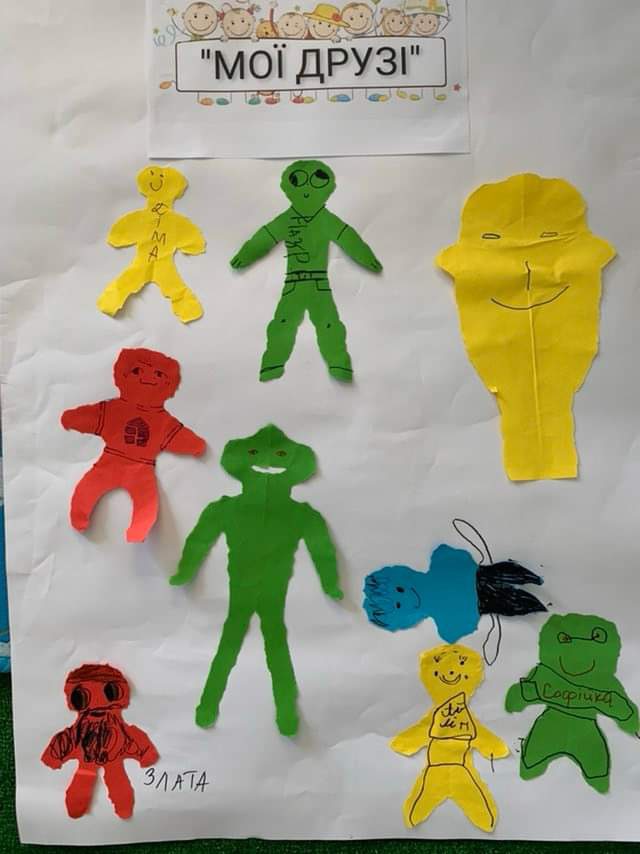
There is a whole gallery of illustrations made by the young guests themselves. On them, they depict their desires and interests and practice with a psychologist in revealing their own feelings.
The organization has a favorite story when they met the representatives of the royal family: "We presented these drawings to the Queen of Sweden. None of the children asked for candy in their drawings but asked for weapons. She cried when she saw it. They also dream of going to school and going to kindergarten. Unfortunately, these are the realities of the lives of Ukrainians now."

One of the drawings.
We notice the black angel and ask Arabadzhyn about it: "It was made by a child whose father died. Now, we are dealing with the fact that children come and reflect on this. 'I wish for peace,' and the Ukrainian flag is an identification for them. They draw the flag everywhere. Children are very smart."
Strilko remembers how active the classes are: "Everyone is engaged in some kind of sport. Even here, push-up competitions begin. They have so much energy, so much desire! You also get recharged from children."
Co-learning helps children release energy, find friends, and form their worldview in society — something lacking in online learning. Unfortunately, children in Zaporizhzhia do not have the opportunity to attend educational institutions fully because this is a great danger: the city is too close to the front line.
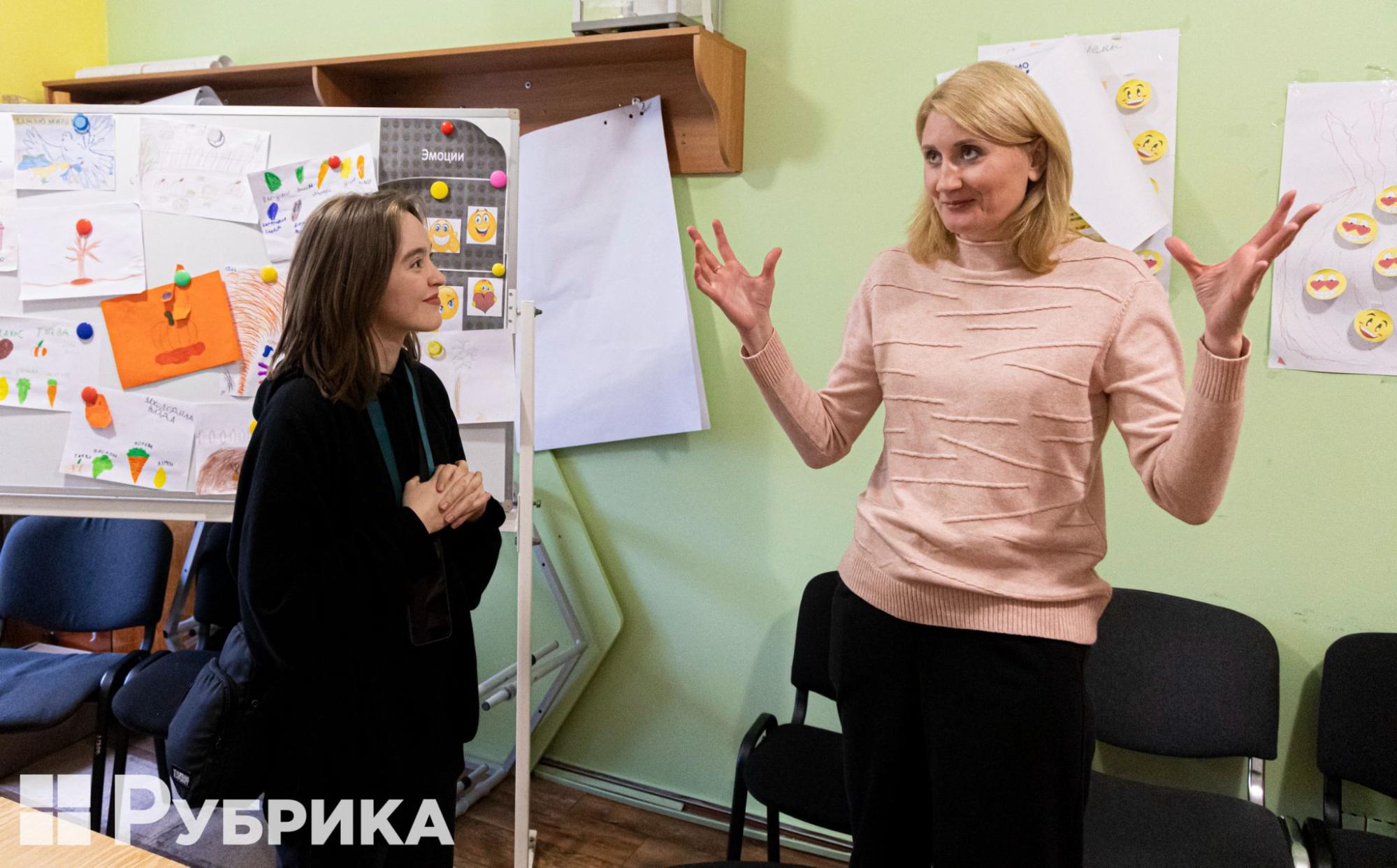
Arabadzhyn adds: "We are very grateful to our partners because, for five months, has been able to work professionally within the framework of the Phoenix project implemented by the Eastern Europe Foundation. It gives us great warmth, and the children also feel that they are not alone."
Everyone has their own pain, but we help people
Nadiya comes to the meetings from Mahdalynivka, which is 5 km to the front line. She does not come to us very often, but when she does, she dissolves and then suddenly jumps out and runs. She runs because the boys are coming back. She feeds them, cooks borscht, bakes pies, washes, and irons things. She says she should warm the house for them. She knows all their mothers, who are from where: some from Dnipro, some from Ivano-Frankivsk. She listens to the training and then retells them.
"People are the most valuable resource we have. Everyone in their place can move mountains and make a huge contribution to that dream word that everyone wants to hear — victory. By sticking together, we don't let each of us break apart and provide our shoulder of support in time," Arabadzhyn smiles.
Maryna Hopko, coordinator of grants of the Eastern Europe Foundation, says that she calls grant recipients every two months and talks about the progress of the project:
"This group of colleagues at Alexandra and S, who are involved in the whole process, are so cordial and warm to this project, so worried about each person who came to them! Simple human things, such simple human happiness, which they understand and feel very much, the sincerity with which they work and give, is really impressive."
They tell the stories of specific people who move from regions where their homes are destroyed, who lose everything, who come in depressed and sometimes do not know what to expect, and how they welcome them into their community, the warm room that they organize for them. These people are already getting a little better. This is a small contribution, but it is precious for each person. "In the conditions in which they work in Zaporizhzhia, where there is a lot of shelling and anxiety, the courage of these people, their devotion, and sincerity impress me very much. Those who, despite everything, work and do their job faithfully inspire me the most," Hopko shares.
Strilko shares where their team finds the strength to continue its activities: "Sometimes it seems that nothing can break us anymore. Now, each team member has their own difficult story brought by the war, their own pain, but we help people. And when you see grandmothers, young people, and happy children running to you as part of the project, you understand that the future lies behind such positivity. You perceive all terrible things as an experience; you pass everything through yourself and are reborn like that phoenix."
The publication was prepared with the support of the European Union. Its content is the sole responsibility of the authors and does not necessarily reflect the position of the European Union. NGO Aleksandra and S "Center for the reintegration of families of forcibly displaced persons 'Future'" within the project "Phoenix: Strong Ukraine during the war," implemented by the Eastern Europe Fund with EU funding.


